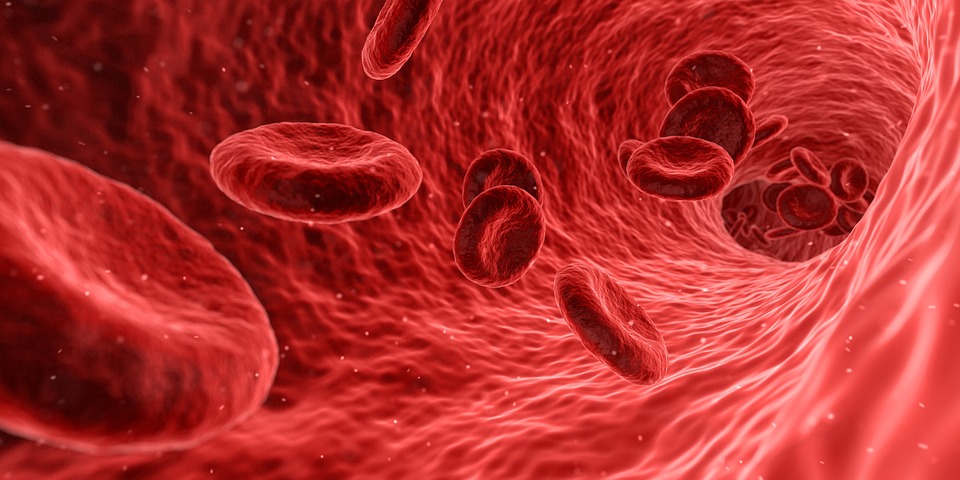
Testosterone Deficiency Syndrome
A survey has lifted the lid on how men really feel when it comes to talking about sensitive topics, with nearly half of British men (49%) more comfortable discussing difficult financial matters than sensitive health issues such as loss of libido.
With only 4 in 10 (41%) regularly speaking with their partner about their physical and mental health, sensitive issues are proving to be a harder topic for today’s man to tackle, even in 2016.
However, experts are concerned that men’s lack of openness about their health may be stopping them from tackling any issues they are facing.
One such issue is testosterone deficiency syndrome or TDS, which affects around 700,000 men aged between 50 and 79 in the UK.
So we decided to interview Dr Douglas Savage who is both a GP and men’s health expert to find more about testosterone deficiency syndrome. What are the signs and symptoms of testosterone deficiency syndrome? How is testosterone deficiency syndrome treated? Who is affected by testosterone deficiency syndrome? Find out more in this fascinating interview below!
Patient Talk – From a clinical point of view, what is testosterone deficiency syndrome?
Dr Doug Savage – It’s a combination of a lower level of testosterone than normal and typical symptoms, the typical symptoms are what we call sexual and non-sexual ones, the sexual ones may be, erection problems and the non-sexual ones which are often actually more striking than the sexual ones , excessive fatigue, poor concentration, the patient often uses the word brain fog , they tend to find it difficult to think things through , they may have a depressed moods, they may be irritable , some of them get excess sweating but I would say the most striking one is the fatigue they often say it’s ridiculous as they could sit down and go straight to sleep.
Patient Talk – Who is affected by testosterone deficiency syndrome?
Dr Doug Savage – This can occur in men of all ages but it’s defiantly like a lot of other things most common as you get older and the reason it gets common as you get older is there is obviously a slight falling of testosterone with age so it’s often related to lifestyle deterioration as one gets older, it’s the same as putting weight on around the middle and as weight goes on around the middle this lowers testosterone and they often get into a vicious cycle as the more fat that goes on there lowers testosterone further and also lack of exercise, so once again this is a condition in many men related to lifestyle but it isn’t all that mainly slim men who exercise but it can get it but its commoner with people with poor lifestyle.
Patient Talk – And what are the main causes of TDS and are there other common co-commodities
Dr Doug Savage – Right so we’ve been into that already it often part of lifestyle or poor lifestyle so excess fat particular around the middle , lack of exercise but it’s also associated with typical medical conditions the commonest one being type 2 diabetes and it can occur in about 40% in those patients, its commoner in man with high blood pressure , cardiovascular disease so many who have had heart attacks, it’s also quite common in men with chronic diseases so what we call in nowadays CODP or what the public often call chronic bronchitis, people with poor kidney function and liver function and deterioration, HIV patients and also the thing that people may not be aware of is people who use chronically powerful pain relievers, it can occur there and often missed there because people just think that they feel sleepy because of the medication .
Patient Talk – Ok and what are the treatments of TDS?
Dr Doug Savage – There are many which will obviously will be discussed with the doctor in detail but generally like so many other conditions it starts with lifestyle modification, reducing that weight and increasing exercise but other treatments are several and would be discussed with your physician.
Patient Talk – And how effective are these treatments?
Dr Doug Savage – The great majority of men do improve both with rising level of testosterone and deduction in their symptoms and I would say there is quite a variation in the speed of recovery , you really do you know working as a doctor in this field many years you do get what I call miracle men and you know within two or three weeks they have just transformed, they will often say ‘god I feel 20 years younger ‘ so that’s the dramatic improvement which is unusual to be honest with you it’s generally a more slow improvement over months and for a few people it’s really a long time until they get fully well maybe even a year or so. We have established one of the reasons of that is connected with what we call ‘deficiency of the testosterone sector ‘basically it’s one thing improving the level of testosterone in the blood stream but obviously what matters is how their body uses that testosterone and its now been shown that peoples efficiency various from one person to another which can’t be predicted but I do warn all patient that this may take some time but be patient.
Patient Talk – Ok and what is the general prognosis of TDS and what changes in lifestyle that someone with TDS expect?
Dr Doug Savage – Well its great in the sense of that many patients we see will say ‘ oh I’ve tried this diet , I’ve tried this and I can’t seem to lose weight’ well what is amazing is often it’s a combination of lifestyle intervention so that’s obviously eating more appropriate food and less of it and medical treatment and if you put the two together that often does produce great improvements in symptoms and the waistline and there are definite trails showing that waist measurement can reduce on treatment and indeed in men improvement of a diabetic control for a diabetic, improvement of blood pressure as if they are losing weight than obviously that will improve so a combination of lifestyle and other treatments can have a great response.
Patient Talk – Ok and what advice would you give to someone who has just been diagnosed with TDS?
Dr Doug Savage – Well to follow the doctor’s advice as I said, the problem is as we know we never, patients particularly men are terrible at taking following up appointments, getting blood tests and you know I do feel sorry for patients as like everybody else we have such busy lives and obviously it’s too tempting to not go back for review so it is very important that a patient attends follow up appointments and the appropriate blood tests.
Patient Talk – Ok and where can people go for more information?
Dr Doug Savage – Right well there is a very good website its especially about TDS and that is called www.whatistds.com and they can obviously google TDS deficiency symptoms and there is a lot of information there, there is loads of information out there and that’s one thing men are least good at they are not very good at talking about things but they are very good at doing the research online and there is plenty of information.
Patient Talk – Ok Dr Savage thank you very much.

